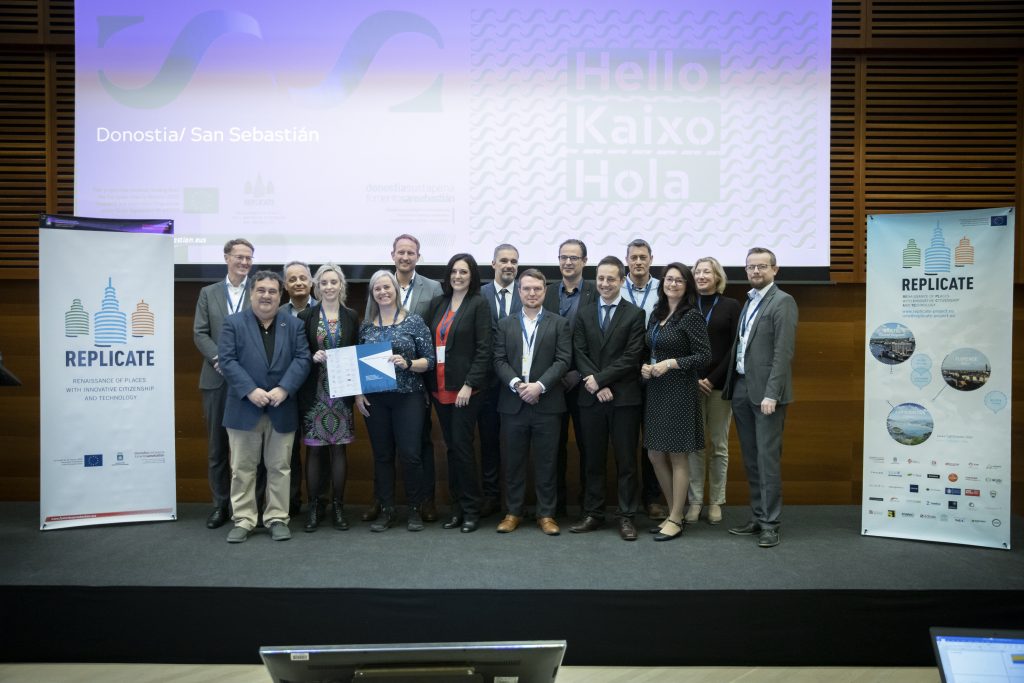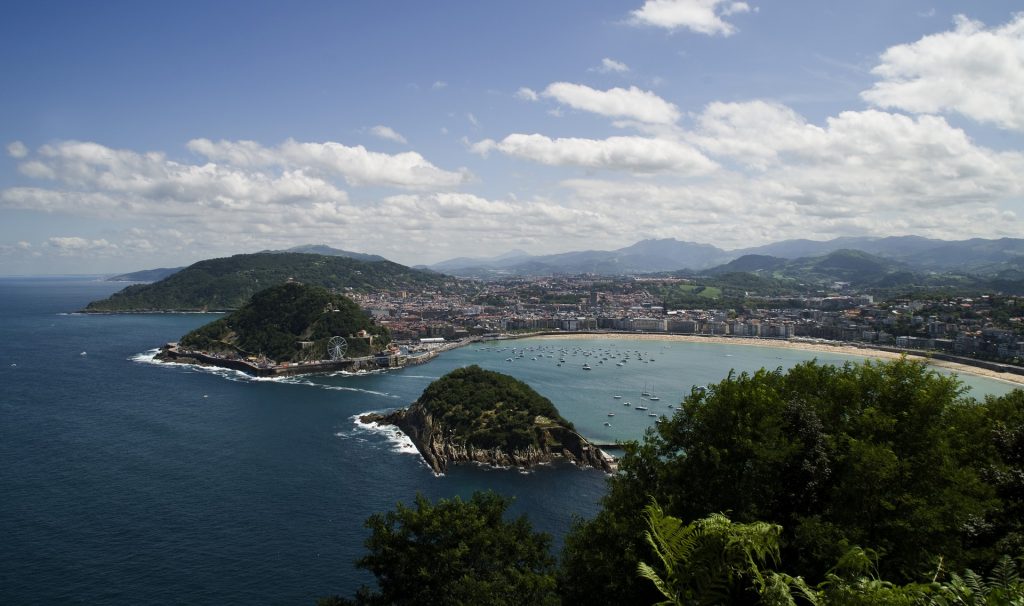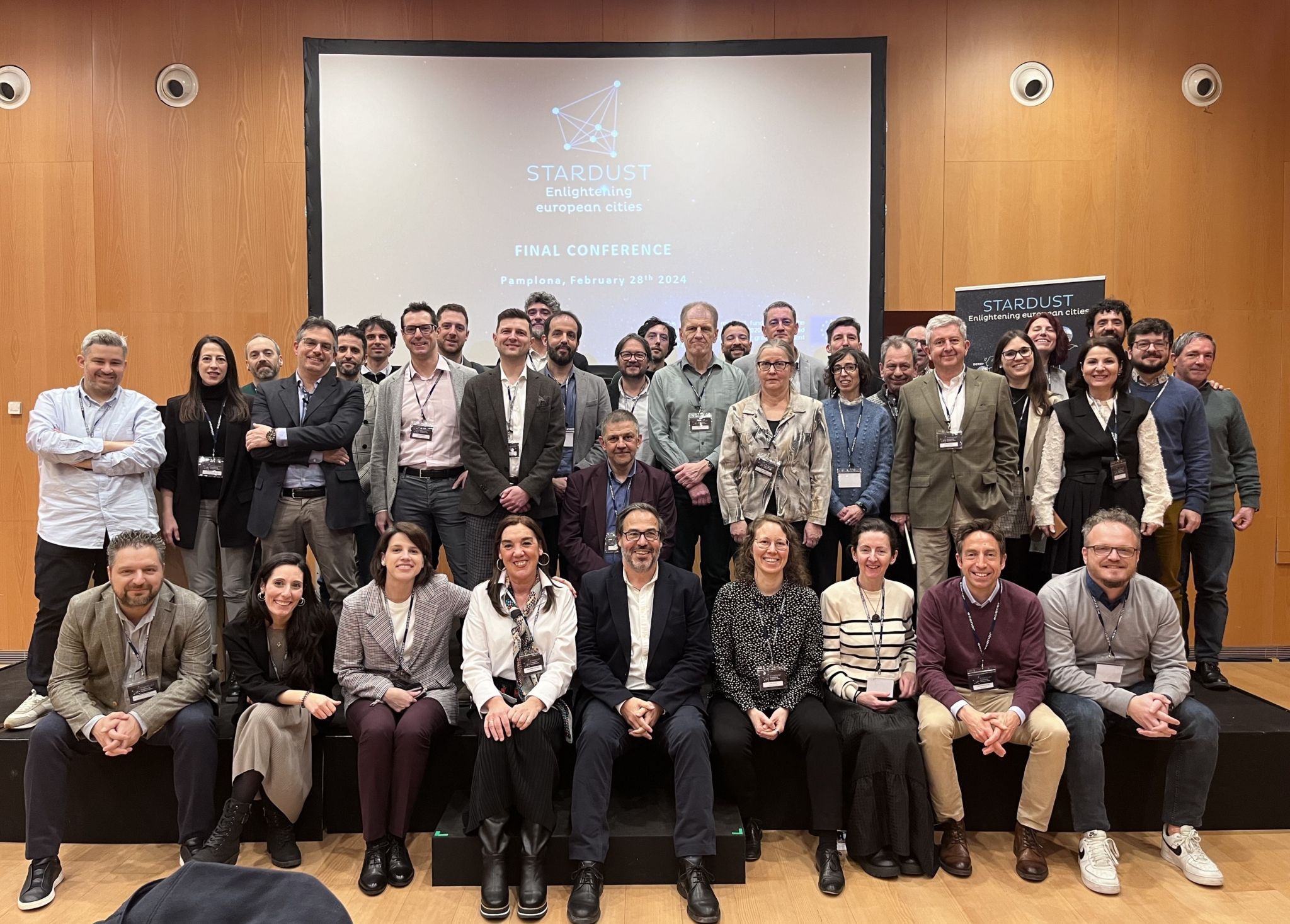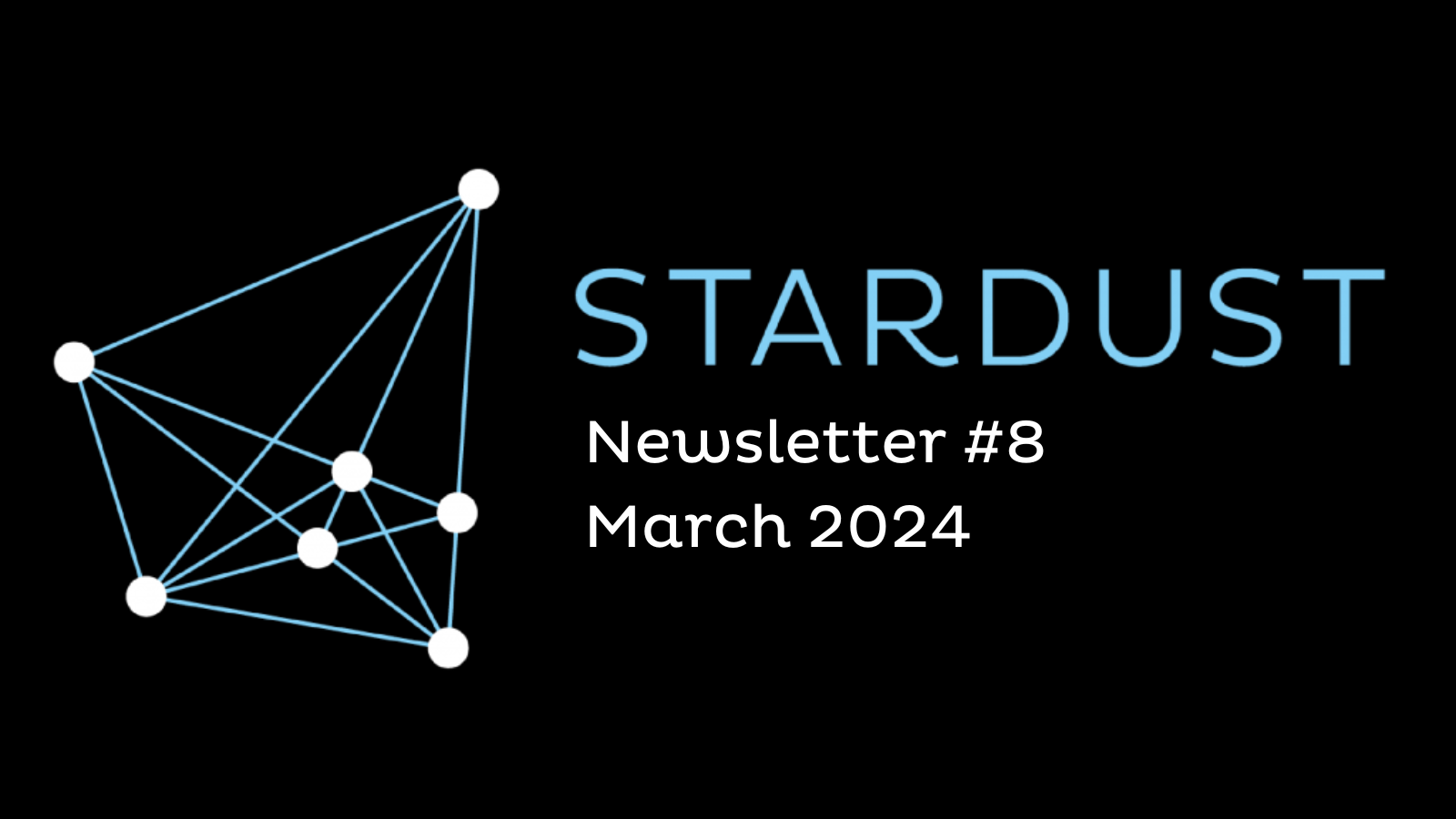On the 26th and 27th of March, members of the STARDUST Consortium have represented the project at the European Smart Projects Summit in San Sebastian (Spain), namely: CENER (STARDUST coordinator), the Pamplona City Council, Fondazione iCons, Zabala and VTT. During the event, representatives and experts across 90 cities from 14 SCC01 (Smart Cities and Communities) projects funded by the H2020 Programme shared their experiences and thoughts about the future of Smart Cities (see the complete list of projects here). The summit was organised by Donostia/San Sebastian, Lighthouse City of the REPLICATE Project.
On the first day, public authorities from San Sebastian welcomed the public and shared key aspects of the city. The EIP – SCC (European Innovation Partnership on Smart Cities and Communities) presented the Smart Cities and Communities opportunities and challenges. Participants had the opportunity to learn about the Smart City Strategy of the city of Donostia/San Sebastián, the Urban-China EU project about responsive cities & regions from the Austrian Institute of Technology, and to get to know experts Francis Pisani and Renato de Castro’s perspectives on how sustainable innovation can impact a city’s transition towards a smarter place.
The Lighthouse Projects Cooperation Manifesto has been ratified by all 14 Lighthouse projects in Donostia/San Sebastián. Two new projects approved in the last SCC01 call – Making City and +CityxChange – also participated in this event. The manifesto establishes the cross-project collaboration framework and management structure for the entire SCC01 community to work together in enhancing the impacts and benefits across cities.

In the afternoon sessions, project representatives shared experiences and key aspects and had a discussion about transformation of districts, energy transition, funding and business models of smart solutions, sustainable mobility models, citizen engagement and data governance.
A study visit took place during the second day. During the visit, the attendees were able to discover the main actions carried out in the REPLICATE project framework. Examples are: retrofitting intervention in 156 households and 34 commercial premises in the Txomin residential neighborhood, the Enertic Smart building with near zero emissions, the city’s latest high-speed mobile wireless network, and the main features about the electric buses and the smart public lightning. REPLICATE also presented their implementations about the Smart City Platform, Smart Mobility Platform, the use of big data for mobility services, the Linked Open Data and Citizen Participation Platform.
All in all, the event was a great opportunity for the 14 Lighthouse projects and participants to celebrate 2019’s first face-to-face meeting among the coordinators and task groups. In addition, they presented their results and learned from each other the latest experiences, difficulties, challenges each project faced while implementing smart city interventions. With the REPLICATE project chairing the collaboration for the first semester of 2019, the European Smart Projects Summit was a great opportunity for the different lighthouse projects to come together and to exchange their expertise among the smart ecosystem stakeholders.


